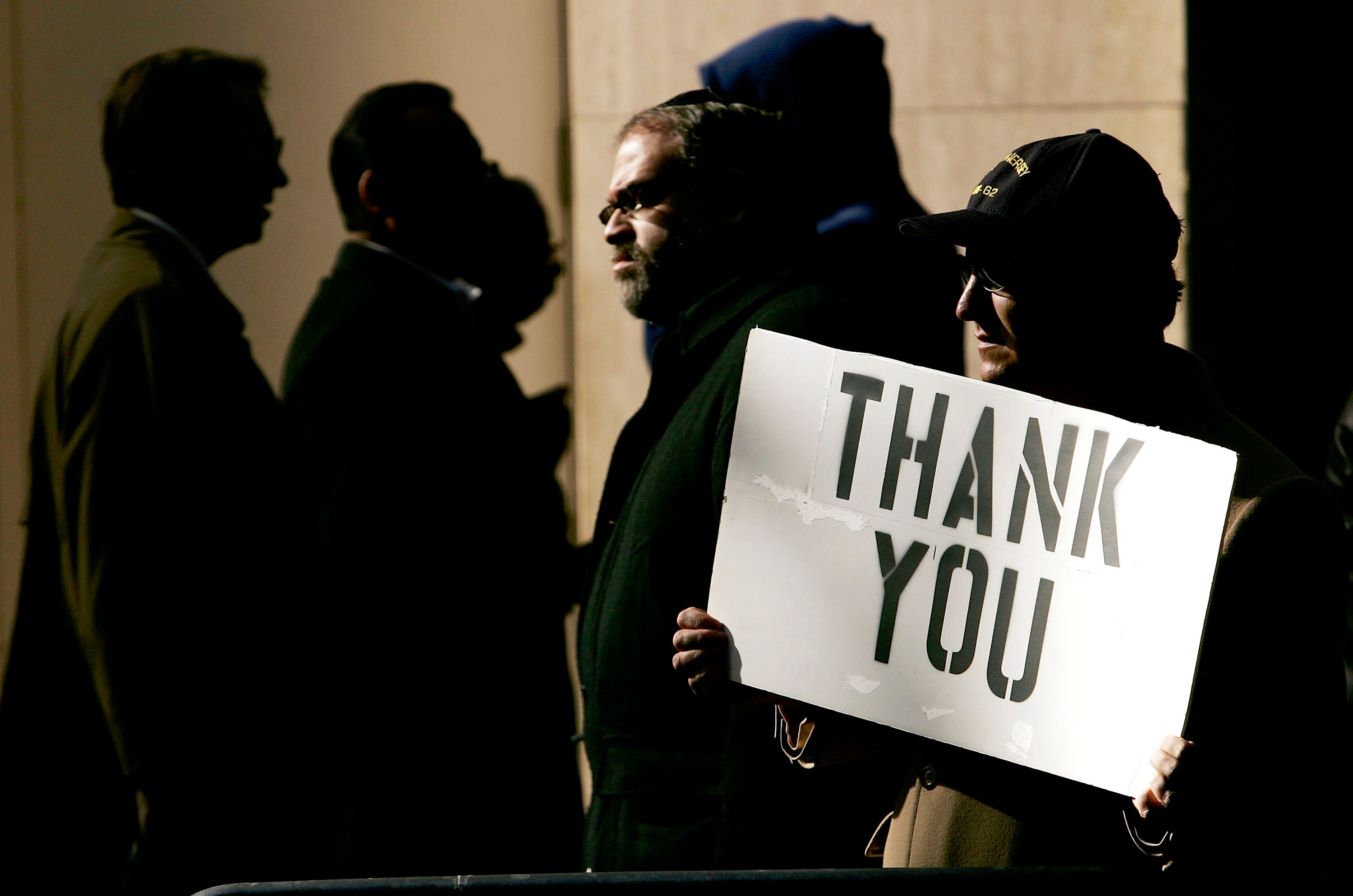Polite UK adults don’t always mean it, says poll
‘It’s clear that we need to focus on not just saying ‘thank you’ to someone, but more importantly, making sure it’s a genuine expression of our gratitude’

Your support helps us to tell the story
From reproductive rights to climate change to Big Tech, The Independent is on the ground when the story is developing. Whether it's investigating the financials of Elon Musk's pro-Trump PAC or producing our latest documentary, 'The A Word', which shines a light on the American women fighting for reproductive rights, we know how important it is to parse out the facts from the messaging.
At such a critical moment in US history, we need reporters on the ground. Your donation allows us to keep sending journalists to speak to both sides of the story.
The Independent is trusted by Americans across the entire political spectrum. And unlike many other quality news outlets, we choose not to lock Americans out of our reporting and analysis with paywalls. We believe quality journalism should be available to everyone, paid for by those who can afford it.
Your support makes all the difference.A quarter of the time UK adults say thank you – they don’t really mean it, according to a poll.
Researchers who polled 2,000 adults found they’ll typically express their gratitude 207 times a month – but 54 of those thank yous are uttered just for the sake of it.
And perhaps as a result, a quarter believe the art of genuinely thanking someone else is ‘dying out’.
However, an insincere thank you is still better than nothing – a third admitted they feel ‘upset’ if they don’t get acknowledged for their actions.
Furthermore, 63 per cent believe good manners are important – and a majority even suggest having good manners makes you a better person.
The survey was commissioned by Virgin Media O2 ahead of ‘Thank You Day’ which takes place on Sunday 4 July.
To mark the occasion, the broadband and mobile phone network provider has teamed-up with William Hanson, who specialises in etiquette, to create a guide on how to show gratitude.
William Hanson said: “Brits have a complicated relationship with giving thanks.
“On the one hand, we are quite buttoned-down, and it’s not ‘the done thing’ to show too much emotion.
“On the other, many of us take pride in our manners – and saying please and thank you is critical to that.
“It’s clear that we need to focus on not just saying ‘thank you’ to someone, but more importantly, making sure it’s a genuine expression of our gratitude.”
The poll also found nearly three in 10 find a text or WhatsApp message their preferred method for expressing thanks.
A few will go as far as sending a gift, like a bouquet of flowers, to show their appreciation to someone.
Meanwhile some will take to social media to shout someone out for something they are grateful for.
While more than half believe they have become ‘more grateful’ during the pandemic.
A few feel saying thank you helps those receiving it with their own mental health and wellbeing, with 90 per cent saying it is ‘good for their health’.
William Hanson added: “This Thank You Day, take the time to thank three people in your lives to show them how much they mean to you.
“My advice to people who want to say thanks to someone that they can’t be with in person, is to do the next best thing and do it via video call, on the phone, or even send a voice note.
“Hearing a voice is not only more personal, but you will naturally feel more connected to each other and what better time to do this than on the national day of thanks.”
A spokesperson for Virgin Media O2, which is helping 400 charities and community groups to hold events this Sunday through its Together Fund, said: “It has been a tough time for many of us, and the simple act of saying thank you to someone, whether you say it face-to-face, via a video call or voice note, can make someone feel valued and special.”
SWNS
Join our commenting forum
Join thought-provoking conversations, follow other Independent readers and see their replies
Comments